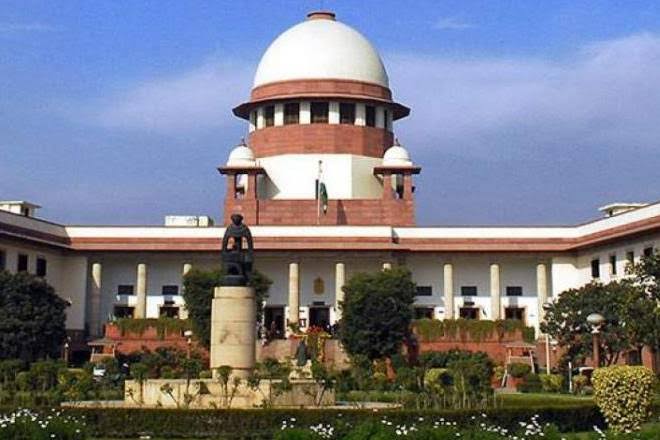On Monday, the SC postponed petitions related to issues in Kashmir. Constitution bench will take them up.

A Supreme Court bench headed by Chief Justice of India (CJI) Ranjan Gogoi, deferred petitions on the Kashmir issue citing lack of time. It said that the court had to hear the Ayodhya matter on a daily basis and posted the Kashmir hearings to be taken up by a Constitution bench on Tuesday.
A bench headed by Justices Ramanna, Sanjay KishanKaul, Subhash Reddy, B R Gavai and Surya Kant will now hear all the petitions related to the matter.
“We do not have the time to hear so many matters. We have Constitution bench case (Ayodhya dispute) to hear,” said CJI RanjanGogoi.
Petition Details
A total of 14 PILs on Article 370, were listed for hearing before a bench of CJI RanjanGogoi, SA Bobde and S Abdul Nazeer on Wednesday, August 28, 2019.
The litigations arising out of the changes to Article 370 can be divided into three types:
- Habeas Corpus petitions challenging the validity of detentions
- Petitions pertaining to the access to communications
- Constitutional challenges to the changes made by the Parliament on August 5, 2019
A petition filed by Anuradha Bhasin, executive editor of Kashmir Times, published from Jammu and Srinagar said that the Centre should relax its restrictions and allow journalists to “to practice their profession and exercise their right to report freely on the situation prevailing in J&K after clampdown on entire State on August 4, 2019”. The first hearing of this petition took place on August 16. On September 5, an order was passed saying that the final hearing of the petition would take place on September 16. The court then adjourned the petition to September 30 and now citing lack of time, it has been deferred one more time to Tuesday, October 1.
Child rights expert Enakshi Ganguly and the first Chairperson of the National Commission for Protection of Child Rights, Prof Shanta Sinha’s PIL on the alleged illegal detention of children in J&K was assigned to the Juvenile Justice Committee for a report two weeks ago. It has also been deferred and will be taken up by the Constitution bench on Tuesday.
The habeas corpus petition filed by CPI (M) General Secretary SitaramYechury for release of former J&K MLA M Y Tarigami also stands referred to the Constitution Bench.
Meanwhile the habeas corpus petition filed by MDMK leader Vaiko seeking the release of former Jammu and Kashmir Chief Minister Farooq Abdullah who had been detained under the Public Safety Act has been dismissed.
No Response from the Centre
Even as Jammu and Kashmir enters the 58th day of its lockdown and communication blockade, the Centre is yet to file counter-affidavits with regards to the petitions filed in the Supreme Court questioning its actions.
When the invasion of the civil liberties of the people is in question, the Government is required, under law and the Constitution, to explain the statutory basis for any measures it takes and how they are justifiable. The Government must also show the proportionality of these measures and make it clear why a lesser degree of infringements will not meet the government’s stated objectives.
Unfortunately, even after several weeks, no explanation has come forward by the Government.
The court had asked the Centre and State of J&K to file their ‘respective affidavits’ to the petitions on September 16. However, it did re-iterate this in an order –directing that affidavits are filed before referring matters to the Constitution Bench —on September 30.
SuhrithParthasarathy, Advocate of Madras HC and commentator on constitutional matters expressed his apprehension about the delay and said, “If the government believes its decision on Article 370 is justified, then it should be able to justify it on the basis of an expeditiously filed response.”
Constitutional law scholar, Advocate Gautam Bhatia said, “By failing to put its reasons on record, the government is styming constitutional accountability. The court should not indulge it any further.”
Setting the Right Priorities?
The decision of the Supreme Court to hear matters of a religious dispute over sensitive life and liberty matters related to Kashmir have not only come as a rude shock to the people but also have shaken up their trust in the judiciary.
With liberty and the right to free speech being severely limited, with the restrictions on travel and movement of Opposition leaders and journalists, the repressive characteristics of the move show that the courts are allowing the government to violate fundamental rights in the name of national security.
Related Articles:
- Abrogation of Article 370: SC refers petitions to Constitution Bench, issues notices to Center
- Vaiko moves SC, asks where is Farooq Abdullah?